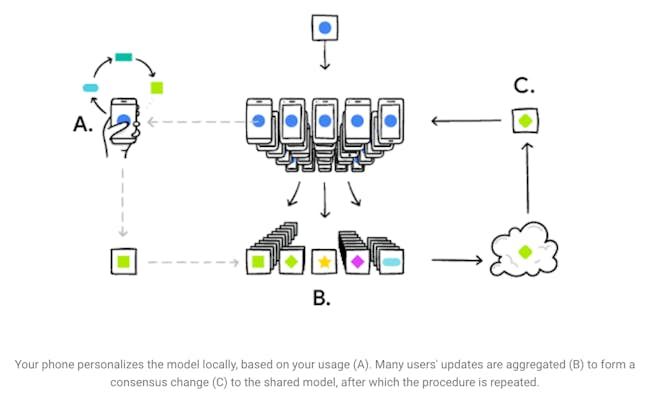Getting Ready for a Future Without Cookies
In a significant shift, Google has revealed that it will not proceed with its earlier plan to phase out third-party cookies in Chrome. This decision, announced on July 22nd, 2024, means Google will continue to support third-party cookie functionality for those individuals opting not to deactivate them. Google is introducing a novel one-off prompt that will allow users to modify their privacy preferences in a manner that will apply uniformly across Google’s web environments to balance user privacy with the demands of digital advertising effectively.
This move hasn’t entirely come as a surprise to those closely watching Google. According to findings from the Forrester Marketing Survey of 2024, conducted before the announcement, over 60% of marketing professionals voiced skepticism about Google’s commitment to discontinuing third-party cookie support, pointing out Google’s heavy reliance on tracking for its advertising business without having a solid alternative ready.
However, this does not signify a return to the status quo for marketers. Google may not be eliminating third-party cookies outright, but the trajectory towards minimizing reliance on such tracking persists. This pause gives marketers additional time to evaluate alternatives, yet there’s still uncertainty regarding the eventual successor to third-party cookies.
Back in 2020, Google had joined forces with Apple and Mozilla in announcing plans to eliminate third-party cookies on its browser by 2022. Collectively, Google Chrome (65%), Apple Safari (18%), and Mozilla Firefox (3%) command an 86% share of the global browser market. In a twist of events, a US judge in August 2024 declared Google’s search engine monopoly “illegal,” further spotlighting Chrome’s predominant role in sustaining Google’s top spot in search. Google is also known to compensate Apple and Mozilla with “billions of dollars annually” to secure its position as the default search engine on their platforms.
While Apple and Mozilla have already taken steps to limit cookies, Google’s decision offers it more time to adapt gently. This introduces a period of uncertainty for marketers, who must now recalibrate their data strategies in anticipation of a diminished role for third-party cookies.
To frame Google’s revised stance on cookies, we will explore:
- The basics of cookies
- The evolving landscape of cookies and their implications
- The future direction of cookie technology
- Timing for these developments
- Strategies for marketers in response to these changes
What are cookies anyway?
Cookies serve a myriad of useful purposes online, originating in the 1990s to help websites remember what items a user added to their shopping cart. Their functionality soon expanded to authenticating login statuses, tracking users across sites, and storing browsing histories.
Cookies have been instrumental in conveying insights into user online behaviors, but concerns over privacy infringement have grown. There are primarily two types: first-party cookies, which are created and utilized by the site being visited and enhance user experience by remembering preferences and settings, and third-party cookies, which are made by external entities to track users for targeted advertising.
Facebook has calculated that around half of its advertising revenue comes from ad personalization, underscoring the effectiveness of this tracking, despite privacy concerns.
What is changing with cookies – and why?
The scrutiny over third-party cookies is part of broader privacy concerns, with legislation like GDPR and DSA going beyond the realm of tracking. The global push towards online transparency places third-party cookies under the spotlight, revealing an opaque system where users’ data is often traded without their consent.
For Google, eliminating third-party cookies without jeopardizing its primary revenue source means finding a balanced path forward. Thus, it’s adopting a phased strategy, offering users more control over their data.
What comes next for cookies?
Apple’s CEO Tim Cook has confidently stated that successful advertising doesn’t necessitate extensive personal data compilation. However, advertisers recognize the power of personal data in crafting efficient campaigns.
The challenge for Google and other ad technology providers is developing a method that mimics cookie tracking but respects user privacy. The UK’s ICO expressed disappointment over Google’s revised approach but remains vigilant about reducing invasive tracking.
Google’s ‘Privacy Sandbox’ initiative proposes aggregating and anonymizing data via federated learning, aiming for a privacy-respecting yet effective advertising model.

Under Google’s proposal, advertisers will shift from targeting individuals to targeting groups with similar behaviors, maintaining at least 95% of the conversion rates compared to traditional cookie-based advertising.
Both Facebook and major retailers are also experimenting with new targeted advertising methodologies that could indicate a significant shift in how digital advertising operates without compromising on effectiveness.
How should marketers prepare?
Irrespective of Google’s final stance on third-party cookies, the advertising world is evidently moving towards a less intrusive model. A notable change is a shift towards contextual advertising, focusing on understanding customer behavior patterns more broadly rather than tracking individual journeys.
Marketers should deepen their engagement with customers, leveraging first-party data within the confines of privacy regulations, advocating for a ‘privacy by design’ approach in their digital properties. This strategic pivot, while challenging, aligns with a broader move towards a more privacy-conscious online environment, heralding a new era for digital marketing that prioritizes respectful and ethical data use.
OptiPrime – Global leading total performance marketing “mate” to drive businesses growth effectively. Elevate your business with our tailored digital marketing services. We blend innovative strategies and cutting-edge technology to target your audience effectively and drive impactful results. Our data-driven approach optimizes campaigns for maximum ROI.
Spanning across continents, OptiPrime’s footprint extends from the historic streets of Quebec, Canada to the dynamic heartbeat of Melbourne, Australia; from the innovative spirit of Aarhus, Denmark to the pulsating energy of Ho Chi Minh City, Vietnam. Whether boosting brand awareness or increasing sales, we’re here to guide your digital success. Begin your journey to new heights with us!







